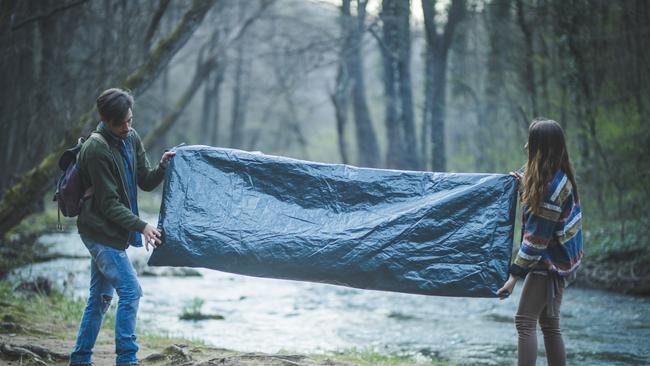Victorian river regulations limit camping to key sites
Regulations for camping on Victorian crown land river frontages licensed to farmers have finally been announced. Get them here.

Camping on crown land river frontages licensed to neighbouring farmers will only be permitted in designated areas, following what the Victorian Government calls a “a rigorous assessment process”.
“Selected sites for camping will be assessed and determined to be suitable from a range of perspectives, including the potential impacts on Traditional Owner heritage values, environmental values, and adjoining farming interests,” the Department of Environment, Land, Water and Planning reported today.
“Camping areas will be released in stages, following public land values assessments by DELWP and cultural heritage assessments by Traditional Owners.”
Up to 27 sites were due to be announced to coincide with the release of the final
Land (Regulated Watercourse Land) regulations 2021 today.
But The Weekly Times understands DELWP land managers were unable to complete site assessments due to regional Covid-19 restrictions.
The Government is still exploring the potential for introducing a registration system for the designated camping areas, but has warned access via private property is trespass, and not permitted without the permission of the landowner.
Farmers, Landcare, environmental and indigenous groups had raised concerns at the damage campers could cause, if the Government had gone ahead with its original plan to allow campers free access to more than 17,000km of the state’s riverbanks.
Most of the crown land along waterways are held under 8287 grazing and other licences by neighbouring farmers and other landholders, who feared they would be left to police thousands of campers, clean up their rubbish and deal with conflicts and the risk of run-ins with livestock.
But in the end the government has announced:
CAMPING on licensed river frontages will be limited to designated camping areas. The assessment of areas will ensure they are suitable for camping, with consideration of the environment, public safety, the interests of adjoining landholders, as well as any impact on Aboriginal cultural heritage. Signage will be installed on licensed areas designated for camping. Maximum stay is 14 nights.
CAMPING on unlicensed Crown river frontages is permitted, subject to the regulations (e.g. for compliance with minimum distances, not in areas subject to riparian management works, etc.) Maximum stay is 28 nights.
DISTANCE from a dwelling 200m.
BURYING of faeces is now prohibited within 100 metres of a waterway, in line with other public land regulations.
PORTABLE TOILETS, if available, must be located more than 50 metres from a waterway.
DISPOSAL of soap and detergent is now prohibited within 50 metres of a waterway, in line with other public land regulations.
CAMPFIRES are now prohibited on licensed river frontages except in designated areas. Selection of these areas considers fire risk and emergency vehicle access. As these designated areas are known, they can be more easily patrolled.
Campfires may not be permitted in all designated camping areas, depending on site and landscape bushfire risk factors.
Where campfires are prohibited in a camping area, fuel stoves and barbecues may be used.
FIREWOOD must be brought in to sites where campfires are permitted (not collected on site). Firewood collection is now prohibited on licensed and unlicensed river frontages.
DOGS and other animals are now prohibited on licensed river frontages, except assistant animals, gundogs if hunting with permission of the licensee, and gundogs crossing the area.
VEHICLE access on licensed Crown river frontages, other than on formed roads or tracks, remains prohibited and subject to the Land Conservation (Vehicle Control) Regulations.
LIABILITY as an issue has still not been sorted out, with DELWP stating: “it is expected that licensees would have public liability insurance since the public is currently permitted to access licensed Crown land river frontages for various recreational activities.
“Should an incident occur, each individual case would be considered on its merits through the legal process,” DELWP stated.
A series of draft camping regulation were released for public consultation in April, with more than 1100 submissions lodged, calling for the changes, which the Andrews Government finally adopted outlined below.


